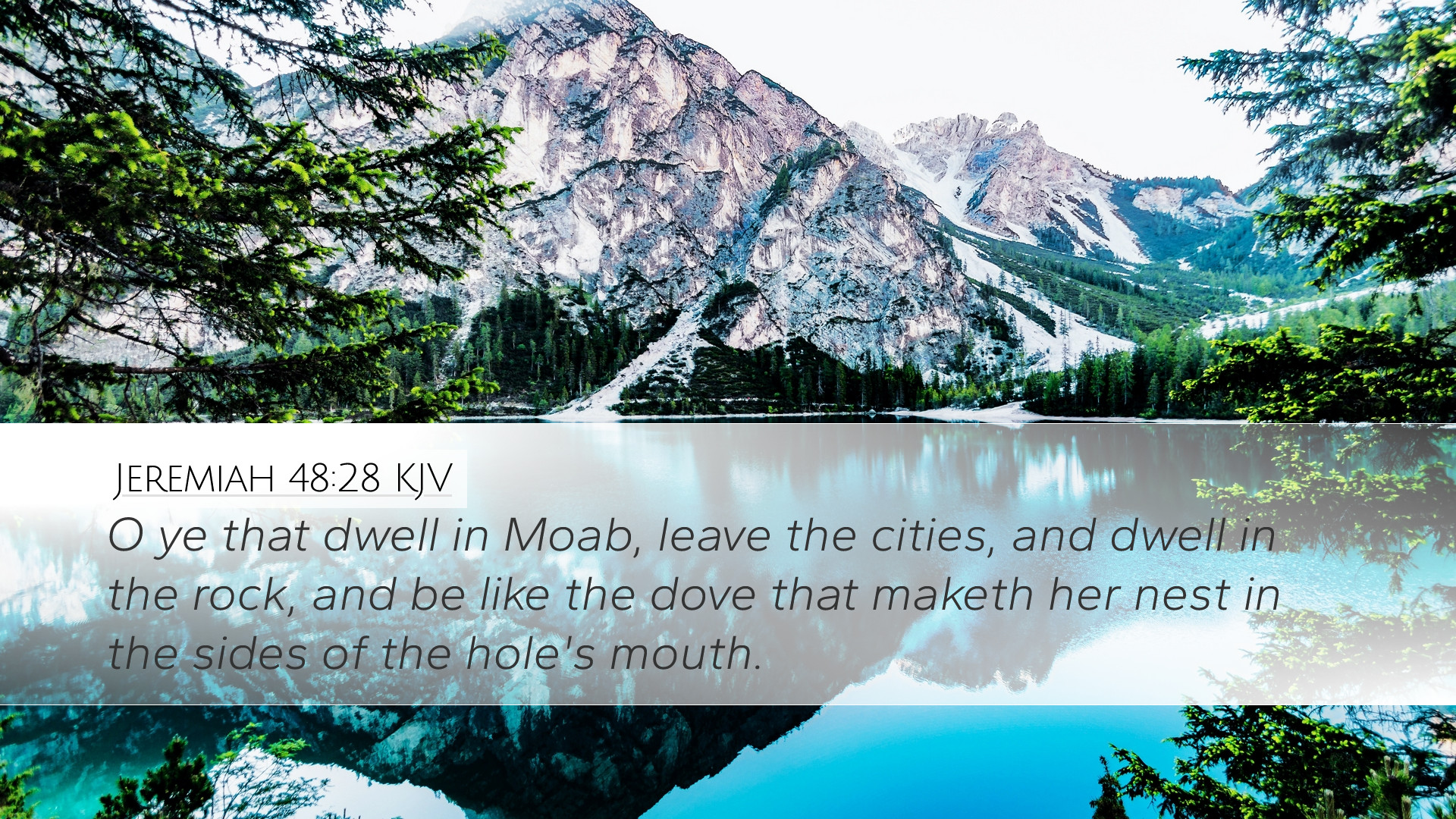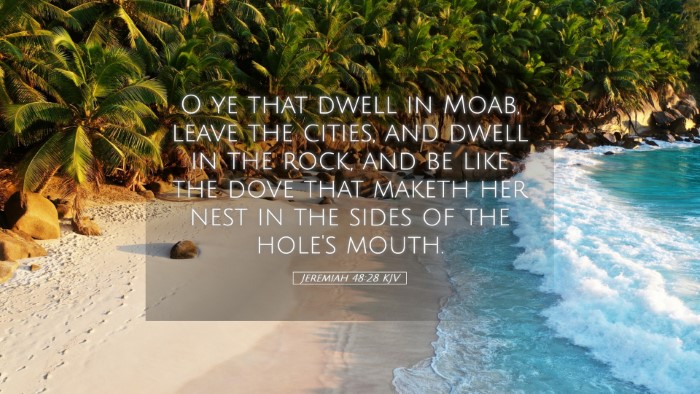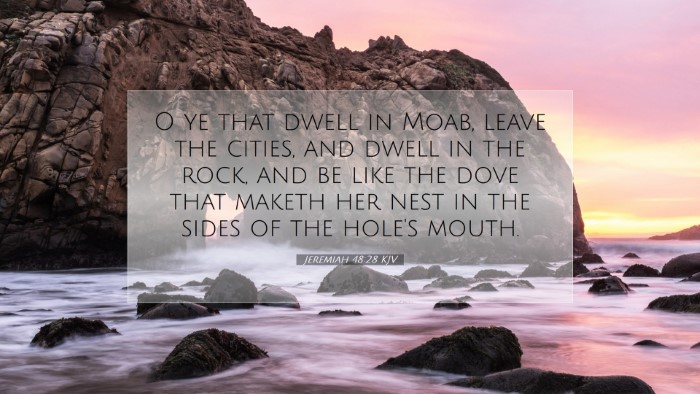Commentary on Jeremiah 48:28
Introduction
The verse in Jeremiah 48:28 encapsulates profound themes of exile, desolation, and the consequences of sin as they pertain to Moab, a significant nation in biblical history. This commentary integrates insights from public domain sources, specifically those of Matthew Henry, Albert Barnes, and Adam Clarke, to provide a multifaceted perspective on this verse.
Text of Jeremiah 48:28
"O ye that dwell in Moab, leave the cities, and dwell in the rock, and be like the dove that maketh her nest in the sides of the hole's mouth."
Contextual Background
The broader context of Jeremiah 48 revolves around the prophetic oracles against Moab. Once a prosperous nation, it falls under the judgment of God due to its pride and idolatry. Understanding the historical and theological implications of this judgment is crucial for a comprehensive analysis of Jeremiah 48:28.
Exegesis and Commentary
1. The Call to Leave Cities
Henry notes the urgency embedded in God's command to the inhabitants of Moab: "leave the cities." This call signifies a profound shift from security to vulnerability, as cities were symbols of safety in the ancient Near Eastern context. The abandonment of cities could be interpreted both literally and metaphorically, suggesting a need for spiritual and communal repentance.
2. The Symbol of the Rock
Clarke expands on the metaphor of dwelling "in the rock." In biblical literature, the rock often symbolizes stability and refuge. The call to escape to the rocks suggests that safety is not found in human constructs (like cities) but in God, the ultimate refuge. This is a thematic element seen throughout Scripture, where God is depicted as a fortress for His people (Psalm 18:2).
3. The Dove as a Metaphor
Barnes elaborates on the imagery of the dove that "maketh her nest in the sides of the hole's mouth." Doves are often associated with peace and innocence in Scripture, and their nesting behavior reflects a desire for safety and shelter. The reference to "the sides of the hole's mouth" signifies a retreat into obscurity and safety away from the dangers of judgment. This portrayal encourages a return to simplicity and reliance on God rather than the pride of earthly structures.
Theological Implications
This verse can motivate a theological reflection on the nature of God’s judgment. Moab's spiritual decline warrants the urgent call to safety, serving as a reminder that divine judgment is often preceded by grace, offering an opportunity for repentance. The call to leave for safety can be viewed as an invitation to return to God, echoing the themes in other prophetic writings.
Practical Applications
- Pastoral Reflection: Pastors may find this verse relevant when guiding congregations through times of uncertainty and societal upheaval. The necessity to find refuge in God’s presence is a driving theme for pastoral care.
- Educational Insight: For students of theology, this passage underscores the importance of understanding the interplay between historical context and the prophetic narrative, demonstrating how the ancient texts speak into present-day realities.
- Theological Examination: Scholars can use this verse to analyze themes of judgment and mercy in the prophetic literature, contributing to broader discussions of eschatology and restitution.
Conclusion
Jeremiah 48:28 serves as a poignant reminder of the tensions between judgment and mercy in the life of God's people. The urgent call for the people of Moab to abandon their cities reflects not only a physical relocation but a deep spiritual necessity to seek refuge in God. Drawing from the insights of Henry, Barnes, and Clarke, this commentary highlights the timeless relevance of scripture as it calls believers to seek safety and identity in their relationship with God.


